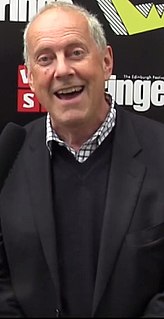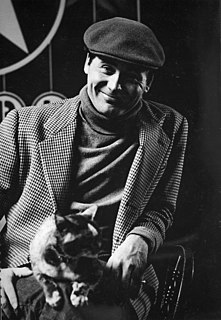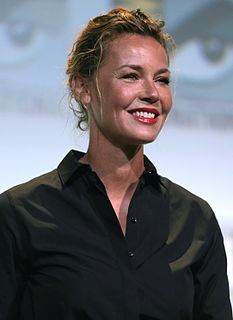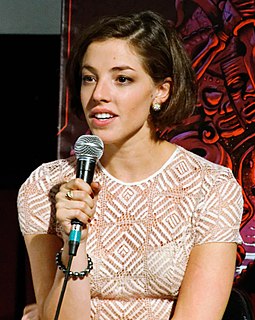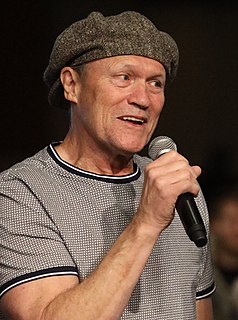A Quote by Ian Hart
Even before my audition, there were several pages missing from my script because those bits were so unbelievably secret not even I was allowed to see them.
Related Quotes
The hardest bits of my book to read were the easiest bits to write because they were the most immediate. Probably because I had never stopped thinking about them on some level. Those bits I was just channelling and those were the most exciting writing days. The bits I found harder were the bits that happen in between, you know, the rest of living. There were whole years, whole houses, that I just got rid of.
For example, the insurance industries and the big banks are absolutely euphoric now - on the business pages they don't even conceal it - because they've succeeded in coming out of the crisis even stronger than they were before, and in a better position to lay the basis for the next crisis. But they don't care, because they'll get bailed out again. That's class consciousness with a vengeance.
Later, I went one step further, by putting in some invented "historical" bits [into the Lincoln in the Bardo]. And reading those alongside the actual historical bits was like looking into a sort of a painful mirror, because "my" parts were so show-offy at first. They stood out because they were so flamboyant.
I first became fascinated with the Sears catalogue because all the people in its pages were perfect. Nearly everybody I knew had something missing, a finger cut off, a toe split, an ear half-chewed away, an eye clouded with blindness from a glancing fence staple. And if they didn't have something missing, they were carrying scars from barbed wire, or knives, or fishhooks. But the people in the catalogue had no such hurts. They were not only whole, had all their arms and legs and eyes on their unscarred bodies, but they were also beautiful.
But what will happen even if we do burn down the Jews synagogues and forbid them publicly to praise God, to pray, to teach, to utter God's name? They will still keep doing it in secret. If we know that they are doing this in secret, it is the same as if they were doing it publicly. for our knowledge of their secret doings and our toleration of them implies that they are not secret after all and thus our conscience is encumbered with it before God.
Even before his detention, my father was fighting many cases. He remained in jail in Multan. He remained in jail in Bannu. But we were not allowed to go see him there. We always saw him in courts. So for me, the courts were a place where you dressed up to see your father. It had a very nice feeling to it.
Often when you get a really good script, and you receive the new pages, you see that the entire thing has been dumbed down. Films in the '30s and '40s, that were huge blockbusters, were very sophisticated in their language, and the ideas they brought. There were no questions about whether the audience would get it or not.


